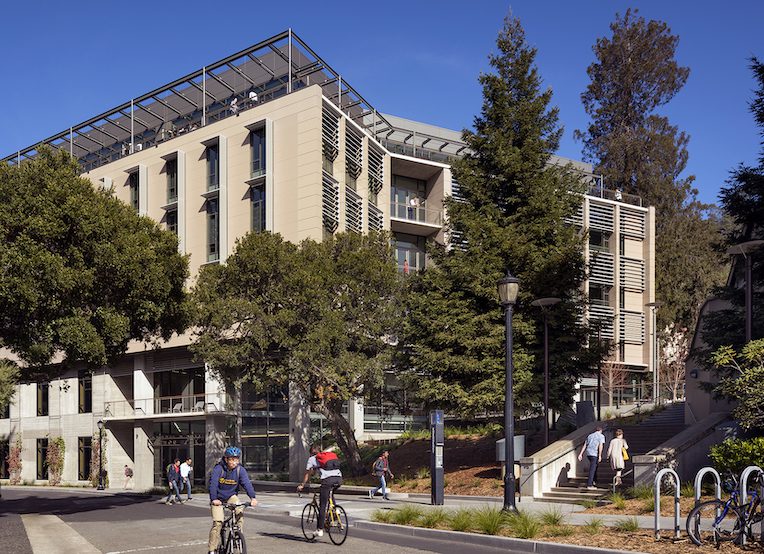
A plan to weave sustainability across the Berkeley Haas curriculum is underway, with faculty adding fresh cases, new class materials, and lectures with industry leaders to their courses.
“We are doubling down on our investment in sustainability and preparing the next generation of sustainability leaders,” said Berkeley Haas Dean Ann Harrison.
Making Haas the number one business school for sustainability is a goal shared by Harrison and Michele de Nevers, executive director of Sustainability Programs at Haas. “Our goal is that all graduates should have an understanding and awareness of the sustainability challenges, issues, and a framework for thinking about these challenges as they go forth into their careers,” she said.
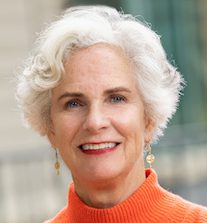
By the end of 2023, the school plans to retool all 14 core courses at Haas to incorporate concepts that address climate change and other sustainability challenges throughout various business disciplines. (Haas already offers many elective courses focused on sustainability, everything from Energy & Environmental Markets to Business and Sustainable Supply Chains.)
“Accountants need to plan for the effects of climate change on valuation and outcomes; real estate developers and financiers will need to consider climate changes in forecasting risk; so will consultants and investment bankers,” Harrison said.
Becoming a leader
There are many signs that Haas is moving toward its goal as a sustainability leader. More than two-thirds of the full-time MBA Class of 2021 took a course focused on sustainability while they were at Haas. And a total of 109 part- and full-time MBA students are signed up for the new Michaels Graduate Certificate in Sustainable Business, a 9-credit certificate program. The first 10 students earned the certificate last year in one of three tracks: corporate sustainability, sustainable finance, and impact venture capital.
The school is also developing a dual masters program with Berkeley’s top-ranked Rausser College of Natural Resources that will combine an MBA with a masters in climate solutions.
The school is also developing a dual masters program with Berkeley’s top-ranked Rausser College of Natural Resources that will combine an MBA with a masters in climate solutions.
In addition, Haas is also moving its campus further toward carbon neutrality. The Financial Times this week named Haas among the more ambitious schools today in this area, citing its efforts with UC Berkeley to be carbon neutral by 2025, for both direct emissions and indirect emissions arising from electricity consumed. (Chou Hall is already certified as zero-waste — defined as diverting more than 90 per cent of refuse from landfill.)
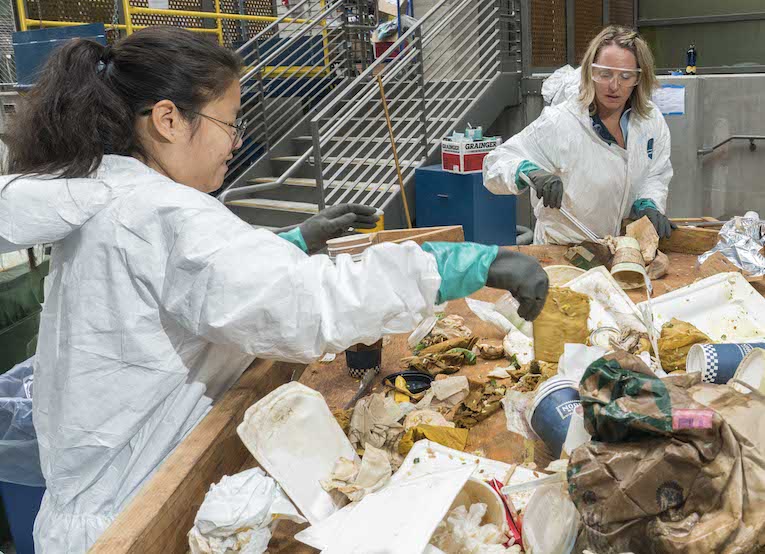
For the past year, de Nevers has been assessing how sustainability is incorporated within the curriculum. She is working with the faculty to update courses during the 2021/2022 school year to address sustainability, tapping funds from the Holmstrom Sustainability Curriculum Grant.
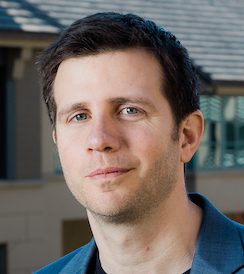
Faculty members participating include Assistant Professor Omri Even-Tov, who is teaching a carbon emissions case he co-wrote with Professor Xiao-Jun Zhang, in his Financial Accounting course. Taught to first-year MBA students, the case addresses how companies can provide detailed disclosures about their carbon emissions in financial statements and estimates the direct and indirect costs of disclosure. The case also asks why companies might act to mitigate pollution—and evaluates the costs and benefits of those actions.
At the undergraduate level, Professor David Levine includes sustainability issues during most weeks teaching his macroeconomics course, integrating it into topics such as measuring GDP, international trade, recessions, and the analysis of current policies such as the environmental elements of Biden’s “Build Back Better Plan.”
During discussion on global climate change toward semester’s end, students will engage in a simulation, with teams taking on the roles of different nations. “Their job is to see if they can find a climate agreement that they all find acceptable,” Levine said.
Five key areas
Across campus, what makes Haas stand out is the extensive work the school has done is five key areas of sustainability: energy, the food chain, the built environment, sustainable and impact finance, and corporate social responsibility.
The Energy Institute at Haas provides research on everything from solar energy programs to carbon pricing and oversees the Cleantech to Market program, a cleantech accelerator that pairs students with scientists to help push promising technologies to market; the Fisher Center for Real Estate and Urban Economics recently outlined plans to revamp its curriculum to tackle challenges posed to real estate by climate change; the Center for Social Sector Leadership (CSSL), led by Cristy Johnston Limón, EMBA 16; and the Institute for Business and Social Impact (IBSI) and its Center for Responsible Business (CRB), which focuses on human rights and business, sustainable innovation, financial inclusion, and sustainable food. The Sustainable and Impact Finance initiative (SAIF) provides experiential learning classes where students get hands-on experience managing impact and ESG funds.
The Sustainable and Impact Finance initiative (SAIF) provides experiential learning classes where students get hands-on experience managing impact and ESG funds.
In 2020, CRB led a survey of MBA employers across industries, asking them about their sustainability roles and the necessary skills required for success. They then mapped those in-demand skills to content taught in more than 40 Haas courses—that teach everything from impact measurement and management to systems thinking to coalition building.
Separately, CRB curated a database of top corporate sustainability cases and articles for the faculty to use in their courses. “The case compendium is one example where CRB and our wonderful Haas students have curated a suite of sustainability-minded business cases and articles that are primed to be readily integrated into the core MBA curriculum,” said CRB’s executive director Robert Strand.
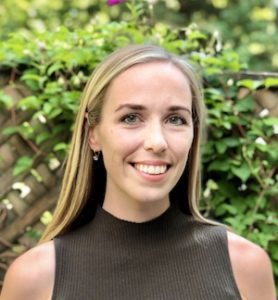
Professional Faculty member Brandi Pearce is teaching a case tapped from the database about Burt’s Bees in her course Leading for Sustainability. The case examines the challenges the company faced in remaining committed to its mission after its acquisition by Clorox. Pearce said the case “encourages students to explore the challenges of becoming part of a public company—with a fiduciary responsibility to shareholders—while remaining a leader in driving social responsibility and sustainability business practices.”
Student demand for new course material in sustainability in the core and beyond is strong, said Olivia Wasteneys, MBA 22, who worked with de Nevers to assess how the faculty is integrating sustainability and on the distribution of grant funds. “It’s not just ESG reporting or climate change but the bigger question of ‘What is responsible business?’ ” she said. “It’s about how we cultivate a stronger sense of ethics and awareness of systemic issues, what we as a society face, and how business plays a role in perpetuating this and how we disassemble it.”